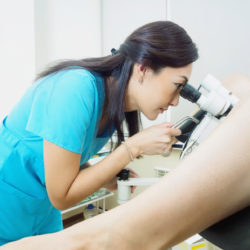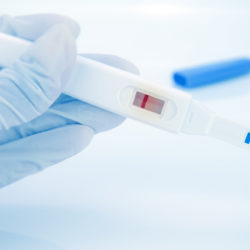Health Info
CU Medicine OB-GYN East Denver (Rocky Mountain) obstetrics, gynecology and women’s health physicians place a special emphasis on treating you and empowering your health decisions. We offer comprehensive health information, patient stories and blogs on complete women’s health care and wellness.
Did you know that OB-GYNs are like two doctors in one? They are trained as obstetricians (caring for pregnancy and birth) and as gynecologists (caring for women’s reproductive and sexual health). Learn more about the differences
Endometriosis is a condition that can cause pelvic pain at specific times, such as around menstruation. Learn the signs and symptoms of this condition.
CU Medicine OB-GYN East Denver (Rocky Mountain) provides compassionate, preventive care and treatment of gynecologic issues for LGBTQIA+ individuals. Learn about our gynecologic services for all people, regardless of their sexual orientation or gender identity.
Human papillomavirus (HPV) is the most common sexually transmitted infection in the United States. Approximately 79 million Americans have HPV, which can be prevented with the HPV vaccine.
Dyspareunia is the medical term for pain that occurs just before, during or after sex. This is not normal and may be the sign of a gynecological problem.
Seeking a second opinion regarding an OB-GYN diagnosis, treatment plan or procedure is the proper thing for a woman to do if she has any concerns regarding her doctor’s recommendations.
Pain management during gynecology procedures can greatly improve the patient experience while reducing the risk of complications.
Women’s health and wellness is important and healthy lifestyle habits promote a longer and more enjoyable life. As OB-GYNs, we educate our patients about this.
Birth control, or contraception, is the intentional act of trying to prevent pregnancy by means of devices, medications, medical procedures or personal behavior.
Gynecology examinations and testing are routine checks on the general health and development of female patients’ reproductive system and organs. Common exams performed by gynecologists include annual wellness exams, Pap smears and ultrasounds.
Our physicians are trained to provide a wide range of services, treatments and gynecological surgeries for women’s healthcare needs.
A woman’s period, or menstruation, is when the lining of the womb sheds, along with blood, exiting through the vagina. This happens if egg fertilization does not occur. Menstruation usually lasts 3-5 days.
Uterine fibroids, endometrial polyps and ovarian cysts can cause pelvic pain, abnormal uterine bleeding, and other complications including infertility. They may be identified during a routine pelvic exam.
Infertility is defined as not being able to get pregnant despite having regular sexual intercourse for at least 12 months (six months if the woman is older than 35). About 10-15 percent of couples in the United States experience infertility.
Menopause is a natural event in a woman’s life when the ovaries are depleted of eggs and she has not menstruated for 12 consecutive months. Treatment for symptoms may or may not be necessary depending on their severity.















